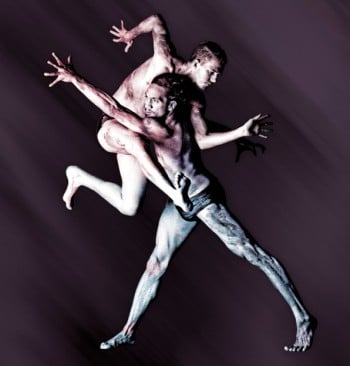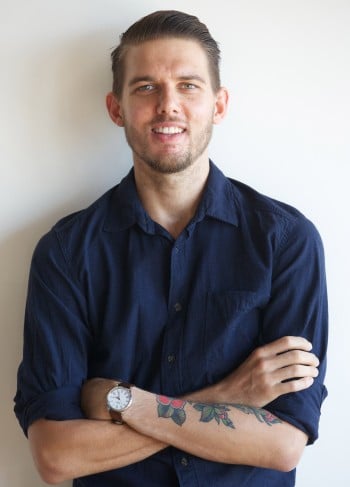Exploring what it means to be ‘Blak’ – in conversation with choreographer Daniel McKinley

Photo: Greg Barrett
‘Blak’ is more than just a deadly way of discussing Indigeneity in Australia. Over the last decade in particular it has become an increasingly popular signifier and is being enthusiastically embraced as a social and political response to Indigenous identity.
It’s only fitting that a company like Bangarra, a monument in the Indigenous performance landscape, should dedicate its 2013 work to an exploration of this subject.
Co-choreographed by Daniel McKinley and Stephen Page Blak promises to be a work that is reflective of the changes happening in our country today and how a contemporary understandings of Indigeneity is rapidly becoming the central focus of debate and discussion.
In a recent chat with Aussie Theatre’s Dione Joseph, McKinley shared the process of how this work has been developed and what he hopes it will bring to audiences in Australia.
“It’s a tricky business examining one’s identity, especially an Indigenous identity within an urban context,” muses McKinley, “Our personal relationships with culture, land and family are integral to developing our sense of self; and especially in an urban context we are challenged to find new ways to respond to who we are and who we choose to be.”
Although not a double bill both McKinley and Page are each choreographing different sections of Blak to create a seamless product.
“I wanted to explore the ideas associated with the transition from boyhood to manhood,” says McKinley. “Exploring the rites of passage available to us as urban Indigenous people and comparing those practices with the rituals in our community is important. It allows us to reflect upon how the concept of identity is in fact so diverse and exists across so many different contexts.”
Arnhem Land has continued to be a reservoir of cultural and spiritual strength for Bangarra and as a young dancer and choreographer McKinley is keenly aware of the different rites of passage that exist, particularly for young men.
Being in a position where I am questioning my understanding of being an Indigenous male, this is a tremendous opportunity to explore men’s business. Stephen on the other hand is working with the female dancers and they’re engaging with similar themes in the form of women’s business.
Inspired by visits to Arnhem Land and having the chance to spend time with Yolgnu elder Djakapurra Munyarryun (who has worked closely with Bangarra on a number of occasions) McKinley is conscious of the colli Dsion of multiple worlds, especially for Indigenous people today.
“In community … ceremony and rituals are still practiced, although perhaps in different ways to how they might have been across generations,” he explains. “But here in Sydney we don’t have a rite of passage where we can just gather on a piece of land and be able to have the same experience.”

Photo: Greg Barrett
With only six male dancers McKinley is both choreographing and performing in his new work, a challenge he is looking forward to.
“It’s very special to be able to dance in my own work but also to be part of our own ‘rite of passage’. We are doing this collectively; it is a shared journey and every body on stage contributes to telling the story.”
However McKinley and his troupe are unaware of what Page and the women are concocting, which is suitably appropriate given the context.
“It’s a sign of respect. Men’s business and women’s business are always kept separate”, explains McKinley.
“While we see each other in the morning and at lunch we don’t ask questions; that adds more focus and energy towards developing each part of the show so we can present a creative and unique whole.”
Working with Page is also a special experience for McKinley who looks upon Bangarra’s Artistic Director as “a mentor but also uncle and brother” and relishes the opportunity to learn and create this brand new work.
Blak is an opportunity to reflect upon our culture but also to constantly challenge ourselves to stay relevant, to be witnesses to the world we live in today, and pay respect to … the past, … the present and future.
As Bangarra forges ahead in 2013 this latest work is sure to be testimony to the company’s strength and resilience; but also their strong spiritual and social aesthetic. Blak is about responding to the moment, the identity of Indigenous people as vibrant, intelligent, responsive and especially in our world today, a people charged with a dynamic combination of action and reflection.
Blak National Tour
Melbourne: World Premiere – 3-11 May
Bookings: Melbourne Arts Centre
Wollongong: 17-18 May
Bookings: Merrigong Theatre Company, IPAC
Sydney: 7 – 22 June
Bookings: Sydney Opera House
Canberra: 11- 13 July
Bookings: Canberra Theatre Centre
Brisbane: 18 – 27 July
Bookings: QPAC
